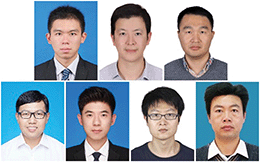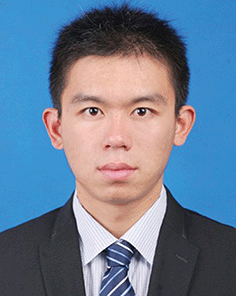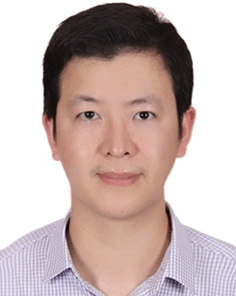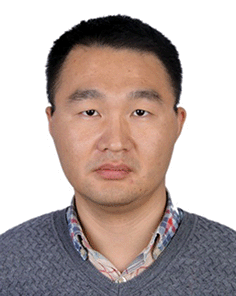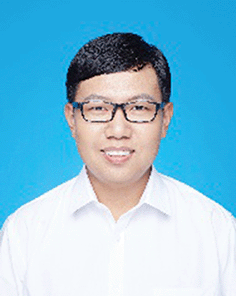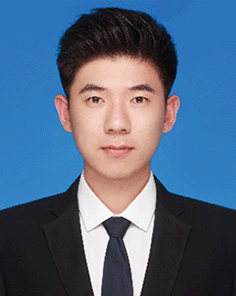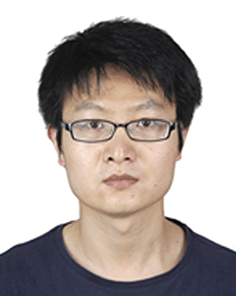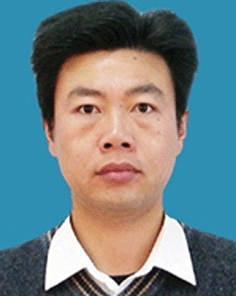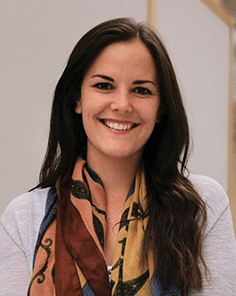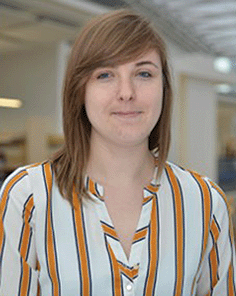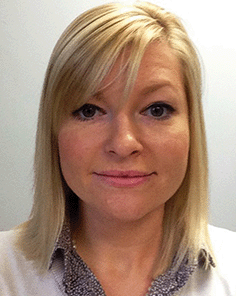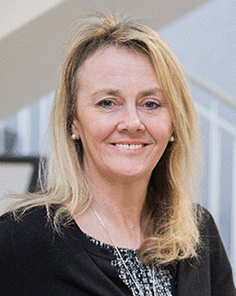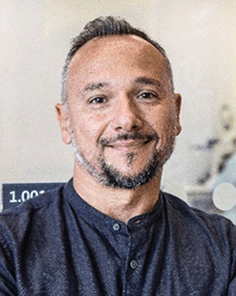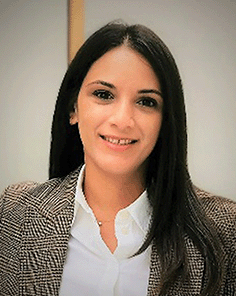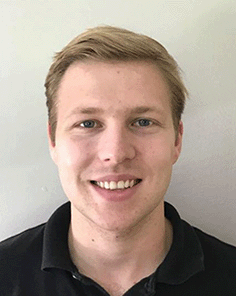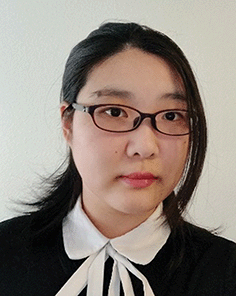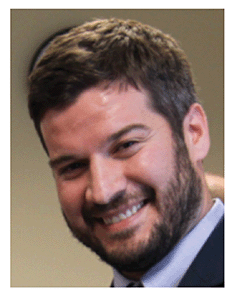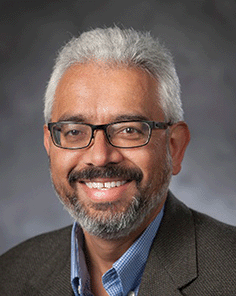Nanoscale Horizons 2020 Outstanding Paper Award
We are delighted to introduce the winners of our 2020 Outstanding Paper Award in this Editorial.Our selection process remains the same as the past two years (see our introductory Editorial from 2019, DOI: 10.1039/C9NH90013F), retaining the focus on the science presented and the potential future impact of the work. As in previous years, the quality of the articles we published throughout 2020 was excellent, and therefore we have chosen to award not only our most Outstanding Paper but also a runner-up and an Outstanding Review for 2020.
Please join us in congratulating our winners; we hope you enjoy reading their outstanding articles as much as we did.
Nanoscale Horizons Outstanding Article 2020:
Lead-free, stable, high-efficiency (52%) blue luminescent FA3Bi2Br9 perovskite quantum dots
Yalong Shen, Jun Yin, Bo Cai, Ziming Wang, Yuhang Dong, Xiaobao Xu and Haibo ZengIn this paper (DOI: 10.1039/C9NH00685K), the authors report the synthesis of lead-free FA3Bi2Br9perovskite quantum dots (QDs) and their optical characterizations. The as-synthesized FA3Bi2Br9QDs exhibit bright blue emission at 437 nm with a high PLQY of 52%. The observed high exciton binding energy (274.6 meV) and low defect density are proposed to guarantee the exciton generation and efficient radiative recombination. In addition, a lead-free perovskite blue light-emitting diode (LED) was successfully fabricated by combining FA3Bi2Br9QDs/PS composites with a UV light chip. The results highlight the potential of lead-free perovskites for applications in light-emitting devices.
The team of Prof. Haibo Zeng at the Nanjing University of Science and Technology has gathered an outstanding team of experienced teaching staff with strong academic and research expertise. At present, the team's main research fields include: luminescence and display materials and devices, photoelectric materials and devices, and flexible electronic materials and devices.
Nanoscale Horizons Outstanding Article runner-up 2020:
The biomolecule corona of lipid nanoparticles contains circulating cell-free DNA
Lois Gardner, Jessica Warrington, Jane Rogan, Dominic G. Rothwell, Ged Brady, Caroline Dive, Kostas Kostarelos and Marilena HadjidemetriouThe spontaneous self-assembled adsorption of protein molecules onto the surface of plasma-incubated nanoparticles (NPs) has been rigorously investigated over the past decade and has been referred to as the ‘biomolecule corona’. However, there is no previous experimental evidence of the contribution of blood-circulating nucleic acids in the molecular composition of the biomolecule corona. In this paper (DOI: 10.1039/D0NH00333F), the authors demonstrate the interaction of cell-free DNA (cfDNA) with lipid-based NPs upon their incubation with human plasma samples. The results reveal higher levels of corona cfDNA in ovarian carcinoma patients in comparison to healthy controls, while the identification of histone proteins in the biomolecule corona suggests a nucleosome-mediated NP–cfDNA interaction.
This work is a collaborative effort between the Nanomedicine Lab at the University of Manchester and the Cancer Biomarker Centre at the Cancer Research UK Manchester Institute and aims to explore the potential use of nanomaterials in liquid biopsies. This multidisciplinary project highlights the potential exploitation of the biomolecule corona as a novel tool for the enrichment and analysis of disease-specific blood-circulating nucleic acids and opens up new possibilities for the multi-omic analysis of biological fluids.
Nanoscale Horizons Outstanding Review 2020:
Dynamic DNA nanotechnology: toward functional nanoscale devices
Marcello DeLuca, Ze Shi, Carlos E. Castro and Gaurav AryaThis review (DOI: 10.1039/C9NH00529C) outlines the past, present and future of dynamic DNA nanotechnology, a diverse subfield within DNA nanotechnology involving nanoscale devices made of DNA whose primary function arises from their ability to undergo controlled motion or reconfiguration. In the past two decades, dynamic DNA nanotechnology has evolved to the point where it is now being used to create devices for sensing, drug delivery, computation and various other applications. The authors discuss the design of dynamic DNA nanodevices and the characterization and modelling of device behavior. They also identify several continuing challenges in this field and discuss potential solutions to those challenges.
Dr Michaela Mühlberg, Executive Editor
Professor Katharina Landfester, Editorial Board Chair
Author Biographies
Nanoscale Horizons Outstanding Article 2020:
Lead-free, stable, high-efficiency (52%) blue luminescent FA3Bi2Br9 perovskite quantum dots
Yalong Shen received his Master's degree from Jiangsu University in 2015 and PhD degree from the Institute of Optoelectronics & Nanomaterials at Nanjing University of Science and Technology, under the supervision of Prof. Haibo Zeng, in 2020. Now, he is a Young Scientist at the Department of Materials Science and Engineering of Suqian College. His current research interests include the synthesis and optoelectronic applications of halide perovskite NCs.
Jun Yin received his Bachelor's degree in Applied Physics from Nanjing University of Posts and Telecommunications (NUPT) in 2009 and Master's degree from the Institute of Advanced Materials at NUPT, under the supervision of Prof. Wei Huang, in 2012. He did his PhD work with Assoc. Prof. Cesare Soci in the Division of Physics and Applied Physics at Nanyang Technological University (NTU) and earned his degree in 2016. Then, he joined Prof. Jean-Luc Bredas’ group as a postdoctoral fellow at King Abdullah University of Science and Technology (KAUST). Now, he is a research scientist with Prof. Osman Bakr and Assoc. Prof. Omar Mohammed at KAUST. His research deals with hybrid nanostructured materials using a combination of computational strategies and first-principles approaches, including density functional theory (DFT), time-dependent DFT and many-body perturbation theory.
Bo Cai received his BS, MS and PhD from the School of Materials Science and Engineering at Nanjing University of Science and Technology in 2013, 2016 and 2020, respectively. He also studied in Prof. Xiao-Cheng Zeng's group (University of Nebraska – Lincoln) as a visiting student from February 2019 to August 2019. Now, he works at Nanjing University of Science and Technology as a postdoc. His current research field focuses on DFT simulations of semiconductors, especially halide perovskites.
Ziming Wang received a Bachelor's degree from the School of Materials Science and Engineering, Nanjing University of Science and Technology. Now, he is a PhD student at the Institute of Optoelectronics & Nanomaterials at Nanjing University of Science and Technology, MIIT. His current research interests include the preparation of perovskite micro-nanosheets by chemical vapor deposition and related optical properties.
Yuhang Dong received his PhD from the Institute of Optoelectronics & Nanomaterials at Nanjing University of Science and Technology. He studied in Prof. Haibo Zeng's group, investigating the interactions between photons and halide perovskite materials, from 2015–2020. Now, he works at Intel DMTM as a process engineer of 3D NAND.
Xiaobao Xu received his BS in Chemical Engineering and Technology and PhD in Optical Engineering from Huazhong University of Science and Technology in 2011 and 2016, respectively. He also studied in Prof. Yang Yang's group (University of California, Los Angeles) as a visiting student from 2014 to 2015 and worked in Prof. Alex Jen's group (University of Washington, Seattle) as a research associate from 2016–2018. Now, he works at Nanjing University of Science and Technology as full professor. His current research interests include using lead halide perovskite materials to construct functional optoelectronic devices, especially photodetectors and sensing devices.
Haibo Zeng obtained his PhD in Material Physics from the Institute of Solid State Physics, Chinese Academy of Sciences, in 2006. Following a position as a visiting scholar at the University of Karlsruhe (with Professor Claus Kling Shirn and Professor Heinz Kalt) and then postdoctoral work at the National Institute for Materials Science (with Professor Yoshio Bando and Professor Dmitri Golberg), he joined the faculty at Nanjing University of Science and Technology in 2011 and initiated the Institute of Optoelectronics & Nanomaterials in 2013. His research interests are focused on functional perovskite materials and devices.
Nanoscale Horizons Outstanding Article runner-up 2020:
The biomolecule corona of lipid nanoparticles contains circulating cell-free DNA
Dr Lois Gardner has a background in human genetics and undertook both her MSc and PhD at the Leeds Institute of Biomedical and Clinical Sciences, University of Leeds. She joined the Nanomedicine Lab at the University of Manchester in 2018 as a Postdoctoral Research Associate where she has collaborated closely with the Cancer Research UK Manchester Institute Cancer Biomarker Centre to develop a nanoparticle-based enrichment method to enhance blood-based cancer biomarker discovery. Lois has recently taken on the role of project manager within the Nanomedicine Lab alongside her lab-based research.
Dr Jessica Warrington received her PhD in Cancer Biology in 2018 from the University of Sheffield. Her PhD project focused on prostate cancer and the use of CRISPR/Cas9 gene editing to explore the role of GPCRs. She then joined the Nanomedicine Lab at the University of Manchester, with a focus on developing nanoparticle platforms to aid cancer biomarker discovery. Her research involved studying the interaction of nanoparticles with blood components, known as the ‘protein corona’. Currently, she is employed at Midatech Pharma, using 3D printing technology to encapsulate medicines into bioresorbable polymer microspheres.
Jane Rogan is Business Manager of the Manchester Cancer Research Centre Biobank, which is a multi-centre biorepository based in Manchester, UK. She is responsible for the day-to-day management and administration of the Biobank in addition to an overarching responsibility for human tissue governance at The Christie. With over 17 years’ service in the NHS, she has extensive experience of human tissue research and its accompanying regulation and has been involved in tissue banking and its related governance since 2005.
Dr Dominic Graham Rothwell obtained a BSc (Hon) in Applied Genetics from the University of Liverpool before studying for his DPhil with Professor Ian Hickson at the Weatherall Institute, University of Oxford, investigating the functional role of DNA repair genes. After this, Dominic moved into more translational research, initially with Dr John Norton, looking for molecular markers in multiple myeloma, before joining Professor Robert Hawkins’ laboratory at the University of Manchester, where he was responsible for developing molecular monitoring of immunotherapy trials including CAR T-cells and the establishment of a GCP compliant facility. In 2011, Dominic joined the Nucleic Acid Biomarker (NAB) team of Professor Caroline Dive at the CRUK Manchester Institute and began his current research focus on the molecular analysis of blood borne biomarkers for use in cancer. This work focusses on utilising circulating free DNA (cfDNA) and circulating tumour cells (CTC) to enable the molecular characterisation of tumours at the genetic, epigenetic, and transcriptional level from a patient blood sample. Dominic has been leading the NAB team since November 2019.
Professor Ged Brady joined the CRUK Manchester Institute (CRUK MI) Clinical & Experimental Pharmacology group, now formally known as the CRUK MI Cancer Biomarker Centre, headed by Prof. Dive, to further develop and apply oncology biomarkers aimed at benefiting clinical practice and patient outcome. He has spent over 40 years developing advanced molecular biological methods and using them to further the understanding of a variety of key biological subjects including DNA replication control, cancer initiation and stem cell regulation. Over the course of his scientific career, he has carried out research in the Max Planck Institute for Molecular Biology (Berlin), the German Cancer Research Centre (Heidelberg), the European Molecular Biology Laboratory (Heidelberg) and the Ontario Cancer Institute (Toronto), and held the positions of Lecturer and AstraZeneca Special Fellow at the University of Manchester (UK). Prior to joining CEP, he helped set up Epistem, a successful biotech company that was spun out from the CRUK MI (known as the Paterson Institute for Cancer Research) by Prof. Chris Potten (former Acting Director of the Paterson Institute for Cancer Research). Throughout his career, he has been driven by both an insatiable curiosity regarding how biological systems regulate themselves, as well as a desire to provide practical solutions and tools for tackling important research and clinical questions.
Professor Caroline Dive completed her PhD studies in Cambridge after which she moved to Aston University's School of Pharmaceutical Sciences in Birmingham, where she established her own group studying the mechanisms of drug induced tumour cell death, before moving to the University of Manchester to continue this research. Caroline was awarded a Lister Institute of Preventative Medicine Research Fellowship before joining the Cancer Research UK Manchester Institute (CRUK MI) in 2003. Currently, she is Interim Director of the Institute and Director of its Cancer Biomarker Centre, with research spanning tumour biology, biomarker discovery and preclinical pharmacology alongside regulated laboratories for biomarker assay validation and qualification within clinical trials to Good Clinical Practice standards supporting clinical decision-making.
Caroline was awarded the Pasteur-Weizmann/Servier International Prize in 2012 for her Biomarker Research, the AstraZeneca Prize for Women in Pharmacology in 2016 and was presented with the 2019 Heine H. Hansen Lectureship Award by the International Association for the Study of Lung Cancer (IASLC). In 2017, Caroline was awarded Commander of the Order of the British Empire (CBE) for her services to cancer research. Most recently, she became an elected member of EMBO (2020), received the inaugural Johann Anton Merck Award in recognition for her exceptional contributions to the field of preclinical oncology (2020) and was the recipient of the Mary J. Matthews Pathology/Translational Distinguished Service Award by IASLC (2021). Caroline is the current President of the European Association for Cancer Research (2020–2022).
Professor Kostas Kostarelos read Chemistry at the University of Leeds and obtained his Diploma and PhD in Chemical Engineering from Imperial College London. He joined the research staff and faculty of medical schools in the USA (UCSF, CA, Memorial Sloan-Kettering, NY and Weill Medical College of Cornell University, NY) and biomedical research institutions in the UK (Imperial College Genetic Therapies Centre and the UCL School of Pharmacy). Kostas became the first named Chair of Nanomedicine in the UK (in 2007 at UCL) and was a Professorial Fellow of the Japanese Society for the Promotion of Science (JSPS) in 2010. He is a Fellow of the Royal Society of Chemistry (FRSC). He is currently Professor of Nanomedicine at the University of Manchester and a Severo Ochoa Distinguished Professor at the Catalan Institute of Nanoscience & Nanotechnology (ICN2) in Barcelona, Spain.
Dr Marilena Hadjidemetriou obtained a BSc in Pharmacy at the University of Athens and a MSc in Drug Delivery at the UCL School of Pharmacy. In 2013, Marilena joined the Nanomedicine Lab at the University of Manchester as a Marie Curie Early Stage Fellow and her PhD project was focused on the development of the nanoparticle biomolecule corona as a tool for cancer diagnostics. After her PhD, Marilena was funded by the CRUK Pioneer Award and the MRC Momentum Award to work on the nanoparticle-enabled discovery of blood biomarkers for cancer and neurodegenerative diseases. In 2018, she was appointed as a Research Fellow at the University of Manchester and she is now a Lecturer in Nano-Omics. Her team aims to develop multi-omic nanotechnology platforms to uncover molecular biomarkers and to explore disease pathways.
Nanoscale Horizons Outstanding Review 2020:
Dynamic DNA nanotechnology: toward functional nanoscale devices
Marcello DeLuca is a PhD candidate and NSF Graduate Research Fellow in the Biological and Soft Materials Modeling Lab at Duke University in the Department of Mechanical Engineering and Materials Science. He obtained his BS in mechanical engineering from Rensselaer Polytechnic Institute in 2018. Marcello's research focuses on self-organization processes in DNA nanotechnology, including DNA origami folding, supramolecular assembly and materials integration.
Ze Shi is working as a Bioinformatics Scientist at BioLegend Inc. She obtained her PhD in Nanoengineering at the University of California, San Diego in 2018 and her BS in Materials Science from Fudan University in 2012. Her PhD research focused on atomistic, coarse-grained and statistical mechanics modeling of mechanically compliant DNA nanostructures.
Carlos Castro is a Professor in the Department of Mechanical and Aerospace Engineering at Ohio State University. He received his BS and MS from Ohio State University in 2005 and his PhD from MIT in 2009, all in mechanical engineering. He carried out post-doctoral research at the Technische Universität München. His research group develops dynamic DNA nanodevices for applications in nanorobotics, biophysics and bioengineering.
Gaurav Arya is a Professor in the Department of Mechanical Engineering and Materials Science at Duke University. He received his BTech from IIT Bombay in 1998 and his PhD from the University of Notre Dame in 2003, both in chemical engineering. He carried out post-doctoral research at Princeton University and New York University, before joining UC San Diego as an Assistant Professor in 2007 and moving to Duke University in 2017. His research group uses multi-scale molecular simulation methods to study a wide range of soft matter systems of interest, including DNA nanotechnology, chromatin, polymer nanocomposites and viral DNA packaging motors. In the area of DNA nanotechnology, in particular, his group is developing approaches for actuating DNA nanodevices, modeling their conformational dynamics and free energy landscapes, and assembling them into higher-order structures.
| This journal is © The Royal Society of Chemistry 2021 |

